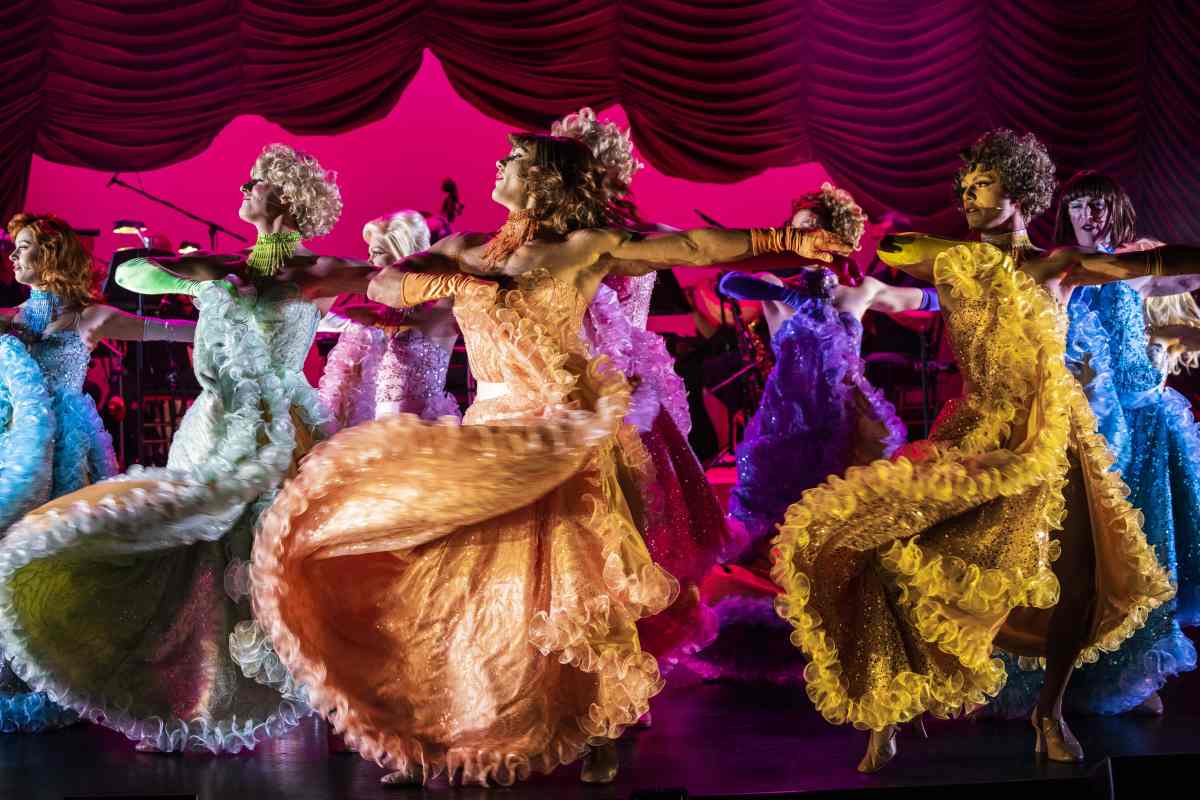When Harvey Fierstein and Jerry Herman’s La Cage Aux Folles won the Tony for best musical in 1984, beating out Stephen Sondheim’s Sunday in the Park with George, it was seen both as something of a coup for the traditional style musical, and also a validation of gay rights and the struggle for equality that still had a long way to go in the early 80s.
The musical’s most well-known song ‘I am What I am’ became an anthem and was covered by myriad popular singers including Shirley Bassey and Gloria Gaynor.
The show was a huge hit, lavishly spectacular and big in heart, and its themes of acceptance, family and love were universal and yet tightly focused through a gay lens. Yes, back in the 80s we really hadn’t started using all those other letters yet.
But nearly 40 years later it is arguable that society has moved on so far that the plot of La Cage Aux Folles has not only dated, but perhaps has passed its use-by date. Yes, the struggle for equality certainly continues, and in some parts of the world people are still murdered for being who they are. But in the places where La Cage Aux Folles is currently likely to be staged, the struggle for rights has moved forward, and the plot has become somewhat too naive to make the same statement it did in 1984. Several scenes and songs like ‘Masculinity’ simply don’t land well anymore. It has became uncomfortable rather than amusing. Maybe Mr Sondheim will end up with the last laugh after all.
The production at the State Theatre in Sydney was staged more simply than the original, with a much tighter cast. But nevertheless, there was still some spectacular sparkle in the costuming by Jozef Koda, and once again it was the small troupe of Cagelles who stole the show, working their socks off – or should I say tights? – throughout. The choreography by Veronica Beattie George had the dancers working hard, and each had a unique character even though working as an ensemble.
Director Riley Spadaro kept the staging somewhat more cabaret in style rather than musical theatre, no doubt trying to play to the strengths of its star Paul Capsis as Albin and focused more on the script’s laughs than its heart.
Capsis is a legend, but when he grafted his own cabaret material into Albin’s dialogue, the line between performer and character blurred dangerously and became incongruous. He nevertheless has a unique voice and can channel a diva like no other, and he was at his best in the diva-esque moments. Albin’s songs were written for a rich baritone and Capsis adapted his range to the character where possible, but aficionados of the show should expect quite a different vocal tone this time.
Michael Cormick was a slick and convincing Georges; his confident presence anchored the production and his smooth vocals were the best of the show. Noah Mullins as Jean-Michel also delivered some lovely vocals and managed to survive the unlikeable writing his character has to endure, and Chloe Malek as Anne gracefully spun her way into our hearts, delivering a heartfelt final moment with honesty and warmth.
Read: Exhibition review: Archiving the Ephemeral, Abbotsford Convent
With a limited season, this was probably one of the last chances to see this classic award-winning musical performed live before the passage of time makes it less and less relevant. Many once great musicals have suffered this fate as their subject material has dated, and several, such as the current Lincoln Center Theatre revival of Camelot, have had major book revisions for a modern audience. La Cage Aux Folles was perhaps not quite there yet, the songs were still very pretty and the dancing was wonderfully energetic.
La Cage Aux Folles
Music and Lyrics by Jerry Herman
State Theatre Sydney
Book by Harvey Fierstein
Based on the French play by Jean Poiret
Directed by Riley Spadaro
Musical Direction by Craig Renshaw
Choreography by Veronica Beattie George
Les Cages Aux Folles was performed 19-23 April 2023.





